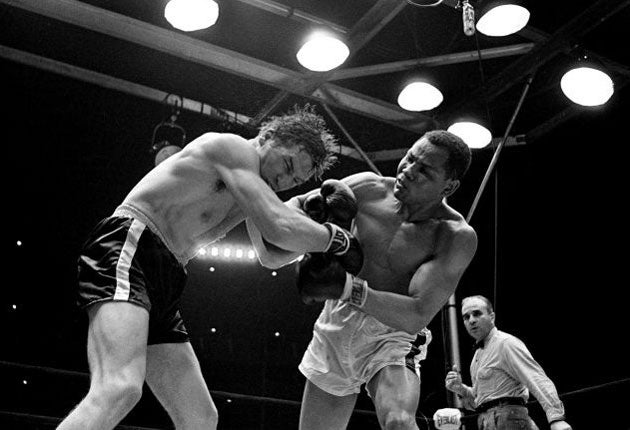Jose Torres: World light-heavyweight champion who became a political activist

Your support helps us to tell the story
From reproductive rights to climate change to Big Tech, The Independent is on the ground when the story is developing. Whether it's investigating the financials of Elon Musk's pro-Trump PAC or producing our latest documentary, 'The A Word', which shines a light on the American women fighting for reproductive rights, we know how important it is to parse out the facts from the messaging.
At such a critical moment in US history, we need reporters on the ground. Your donation allows us to keep sending journalists to speak to both sides of the story.
The Independent is trusted by Americans across the entire political spectrum. And unlike many other quality news outlets, we choose not to lock Americans out of our reporting and analysis with paywalls. We believe quality journalism should be available to everyone, paid for by those who can afford it.
Your support makes all the difference.On the wall of the International Boxing Hall of Fame, to which José Torres was rightly admitted long before his death this week at the age of 72, a commemorative plaque sums up his life in just three words: "boxing's renaissance man." He was all that and more, the gutsy former light-heavyweight champion of the world, who later distinguished himself as a political activist and sporting administrator, before enjoying a successful career as a journalist and writer.
In the ring, Torres enjoyed his finest hour at New York's Madison Square Gardens in 1965, where a sell-out crowd saw him knock out Willie Pastrano in the ninth, with a picture-perfect blow to the gut that sent his opponent crashing to the canvas. The next day, on a tour of the city, he stopped to climb a fire escape on Lexington Avenue. Holding the title belt aloft, he told a cheering crowd "this is for everybody!" saying that if someone like him could achieve something like this, then in New York, anything must be possible.
It was the highlight of a long journey that had begun in Ponce, a city on Puerto Rico's southern coast where he was born in 1936, and eventually saw Torres fêted as one of the most stylish fighters of his generation, who mixed a high-handed "peek-a-boo" defence with flashing combinations and a famously destructive body-shot. After learning to box in the US Army, and winning silver as an amateur in the 1956 Melbourne Olympics, his 11-year career saw him win 41 fights, with 29 knock-outs. He lost just three times, scoring one draw.
He successfully defended his world title three times, against Wayne Thornton, Eddie Cotton, and Chick Calderwood, before losing an epicbattle on points against Nigeria's Dick Tiger, another of the greats of theera, who narrowly outworked him over 15 rounds. A rematch the following year resulted in a carbon copy of the first engagement, with both men trading blows until the final bell. After the result was announced, outraged fans, who thought Torres had deserved to win, began to riot. The NYPD could not properly quell the violence until sunrise.
In retirement, Torres was drawn to politics, working as an aide to Paul O'Dwyer, the president of New York City Council. He later became Puerto Rico's official representative in the city, and also spent several years as both chairman of the New York State Athletic Commission, and a supervisor for the World Boxing Organisation.
During the 1980s, he tried his hand at journalism, writing a column in the New York Post which vociferously championed the causes of the Latino community. It led him to pursuea career as a writer, completing several books about his sport, including Sting Like a Bee, a biography of Muhammad Ali, and Fire and Fear, about Mike Tyson and the "parasites" who surrounded him. Torres wasalso friends with Robert F Kennedy, who he used to take on tours of Latino neighbourhoods, and Norman Mailer, with whom he agreed to spar for three rounds on a Saturday morning,even though the literary great was well into his sixties.
In later years, Torres returned to Ponce, where his wife, Ramonita Ortiz, said he died from a heart attackon Monday morning. The mayor ofthe city declared three days of official mourning and ordered flags to be flown at half mast, in honour of: "avery valiant man who aside frombeing a great athlete was a great human being."
Guy Adams
Jose Torres, boxer, political activist, sports administrator, journalist, author: born Ponce, Puerto Rico 3 May 1936; 1965-67 world light-heavyweight champion; married Ramonita Ortiz; died Ponce, Puerto Rico 19 January 2009.
Join our commenting forum
Join thought-provoking conversations, follow other Independent readers and see their replies
Comments